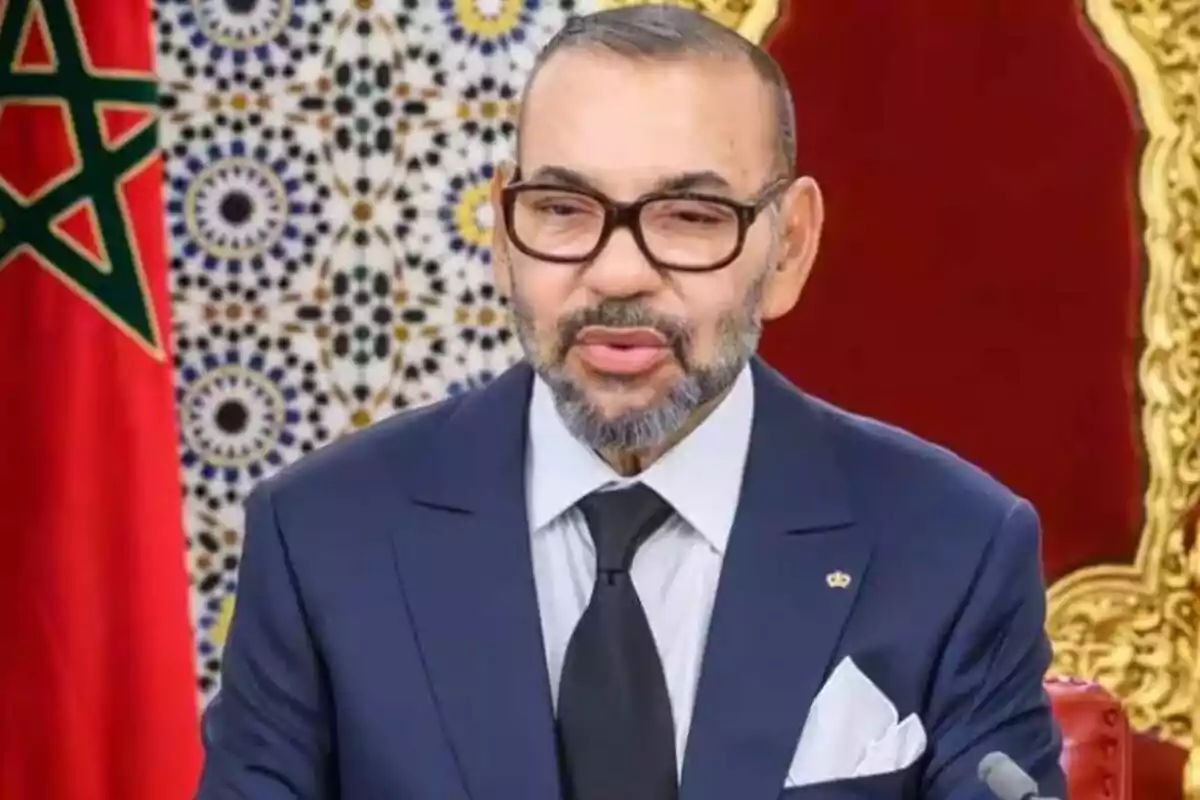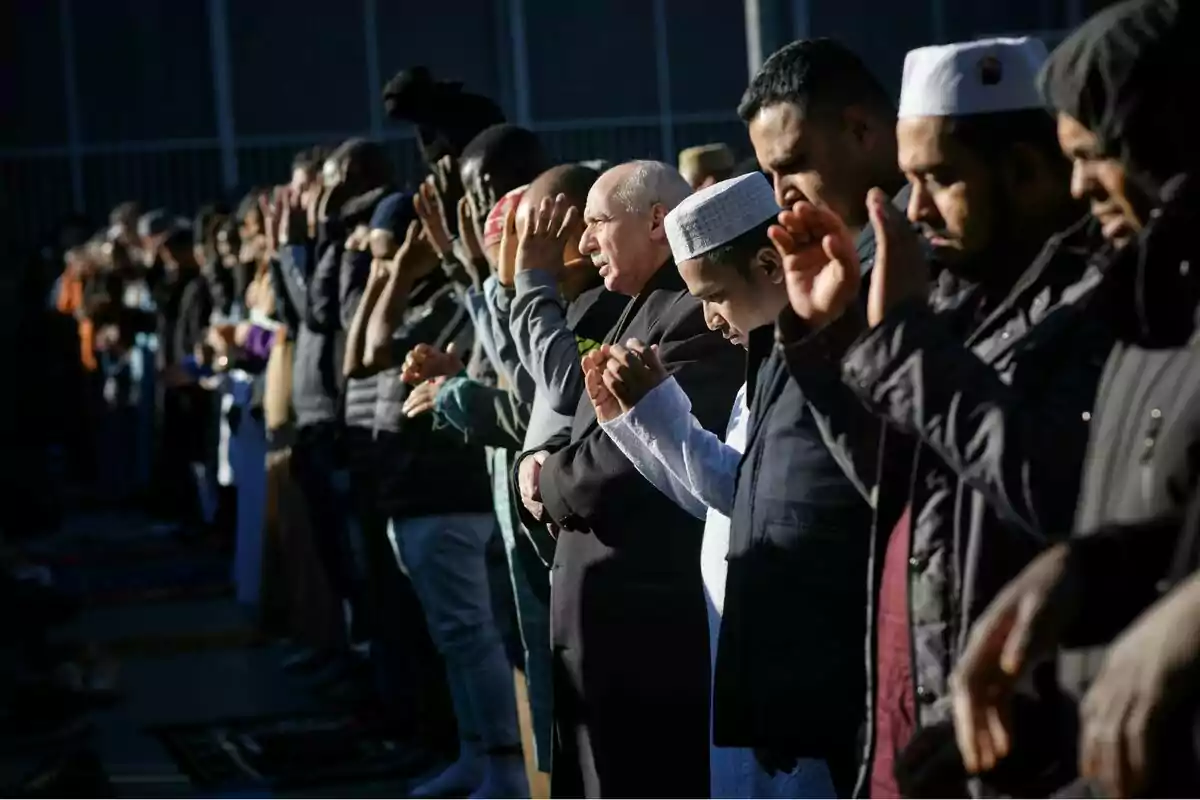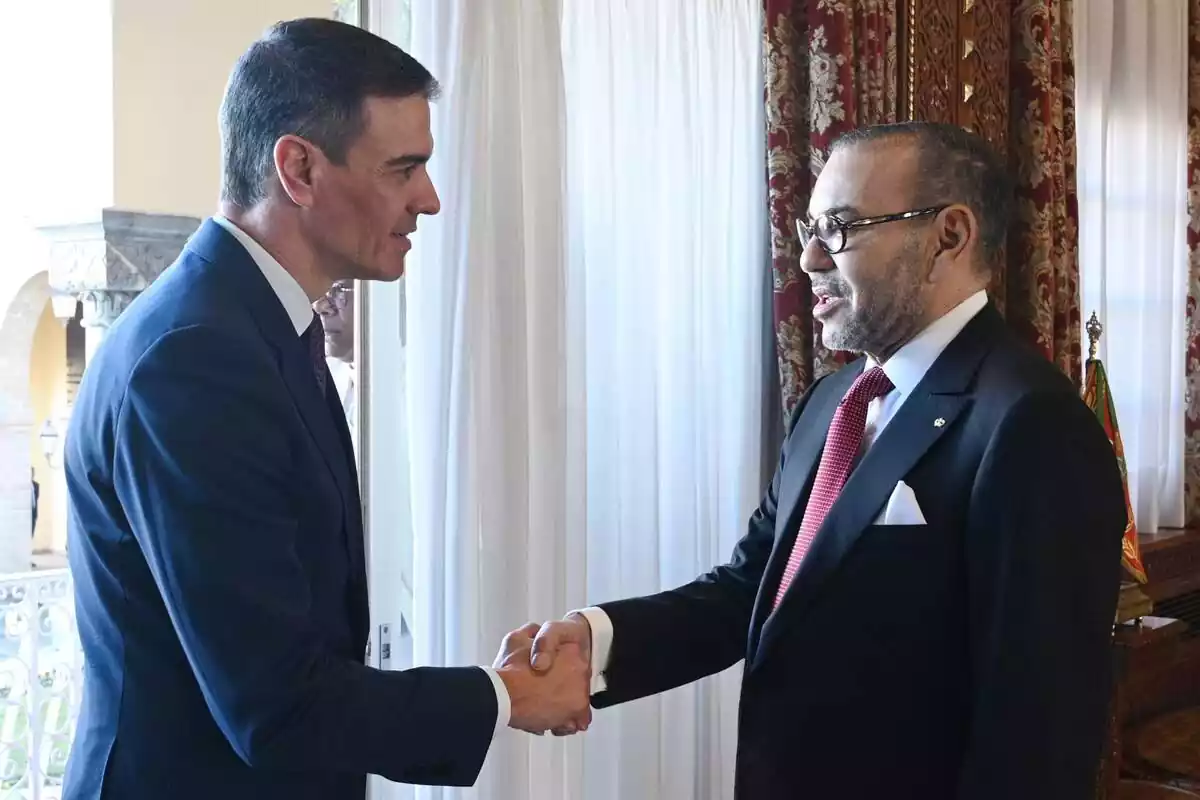
Sahrawi activist warns: Morocco uses immigration in Catalonia for its objectives
There are still many who do not accept that mass immigration is just another geopolitical tool
Talib Alisalem, Sahrawi refugee and international politics analyst, has shaken X with a thread that surpasses six hundred thousand impressions. His thesis is as simple as it is unsettling. Rabat, Alisalem explains, treats its emigrants "as extraterritorial subjects" and mobilizes them to achieve strategic goals.
To prove it, he cites a multitude of data, such as a CNI report that, as early as 2009, described an organized network of mosques, associations, and imams. This network, funded from Rabat, serves to monitor opponents, persecute Sahrawis, and reinforce claims over Ceuta and Melilla.
In this entire situation, Catalonia plays a key role for an obvious reason: the Moroccan community in Catalonia is the largest. Despite this, it is still difficult for many to accept the fact that mass immigration is yet another geopolitical tool. Paradoxically, it is figures like Alisalem, true political refugees, who explain the problem that Catalonia and Spain face.

A key community for Rabat
Nowhere else does the strategic influence of the Moroccan monarchy prove as decisive as in Catalonia. According to Idescat, as of January 1, 2024, 241,179 Moroccans with residence permits lived in the region. This represents 17% of all foreign immigration and the largest Moroccan community in the country. To that figure, tens of thousands of naturalized citizens and their descendants must be added.
This deployment is accompanied by a thriving religious apparatus. A UCIDE study notes 389 registered Islamic communities and eight assistant imams in prisons, hospitals, or juvenile centers. As expected, Rabat funds this ecosystem with resources and personnel trained in Quranic universities in Fez and Rabat.
Thus, Catalonia is home to one in every four Muslims in Spain and, with 326 mosques, is the region with the highest density of prayer halls in the country. A report by El País already warned in 2016 that at least one third of these temples follow the Salafist line. This is a rigorist branch that serves as a breeding ground for radical networks.
The result is reflected in police reports. Four out of every ten people arrested for jihadism since 2010 have been detained in Catalonia, with constant hotspots in Barcelona, Tarragona, and Girona. In just the last two months, the General Information Commissariat has made five arrests in Castelldefels, Montcada, and the Catalan capital itself.

From worship to political activism
The penetration, of course, is not limited to the spiritual sphere. It is rather an offensive that combines religious investment, economic lobbying, and electoral activism. Among the objectives described by the CNI, and which Alisalem makes explicit, is "keeping the great diaspora united" and guiding it politically.
In practice, this translates into public calls to vote for "friendly" parties, as well as community campaigns that increasingly weigh in municipalities such as Salt, Vic, or Badalona, where the immigrant vote can decide mayoralties. In France, by the way, the Ministry of the Interior has detected an almost identical procedure with the Muslim Brotherhood.
The Tarragona case: culture or propaganda
Alisalem illustrates his explanations with the Morocco Festivalorganized in May by the Consulate of Rabat and the Tarragona city council (PSC). On the stage, a portrait of Mohamed VI presided over the speeches while two singers performed hymns that glorify the Green March. That was the operation with which Morocco occupied Western Sahara in 1975.
For the activist, the event "whitewashes the occupation" and shows Morocco's ability to project soft power with the help of local institutions. Ambassador Karima Benyaich and the Government delegate in Catalonia, Carlos Prieto, as well as police commanders, attended the event.
When security conflicts with integration
The lesson is clear: mass immigration can't be explained solely in humanitarian terms. Rabat, on the contrary, uses its emigrants as a geopolitical tool, and Catalonia is now its most ambitious laboratory. This contrasts with the massive inability of many political and journalistic voices to accept the geopolitical reality of immigration. Even more: the difficulty in accepting what real integration of some foreign communities means.
In fact, one of the infiltration strategies consists precisely of taking refuge in the ideas of "diversity" and "multiculturalism." In the case of France—applicable at almost every level to Catalonia—this reality was explicitly pointed out. It was warned that Muslim communities use much of the progressive discourse to shield themselves from criticism.
More posts: